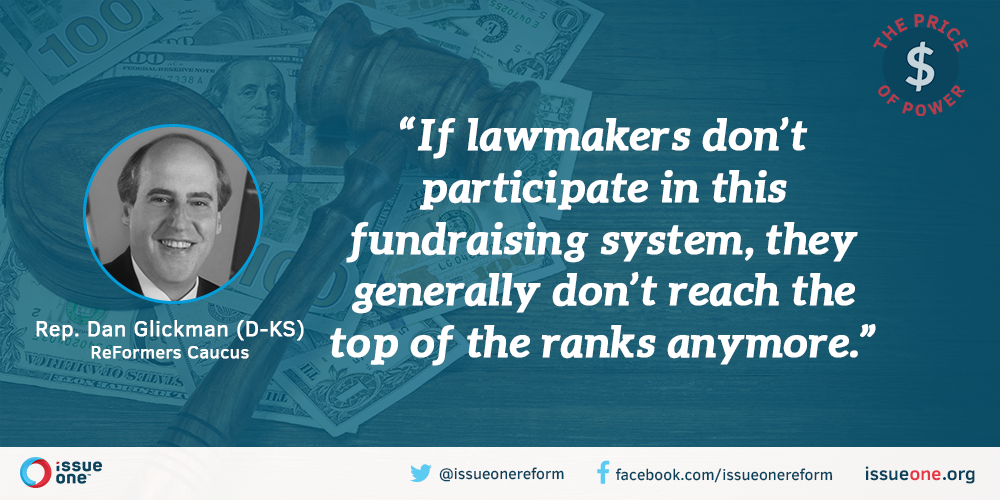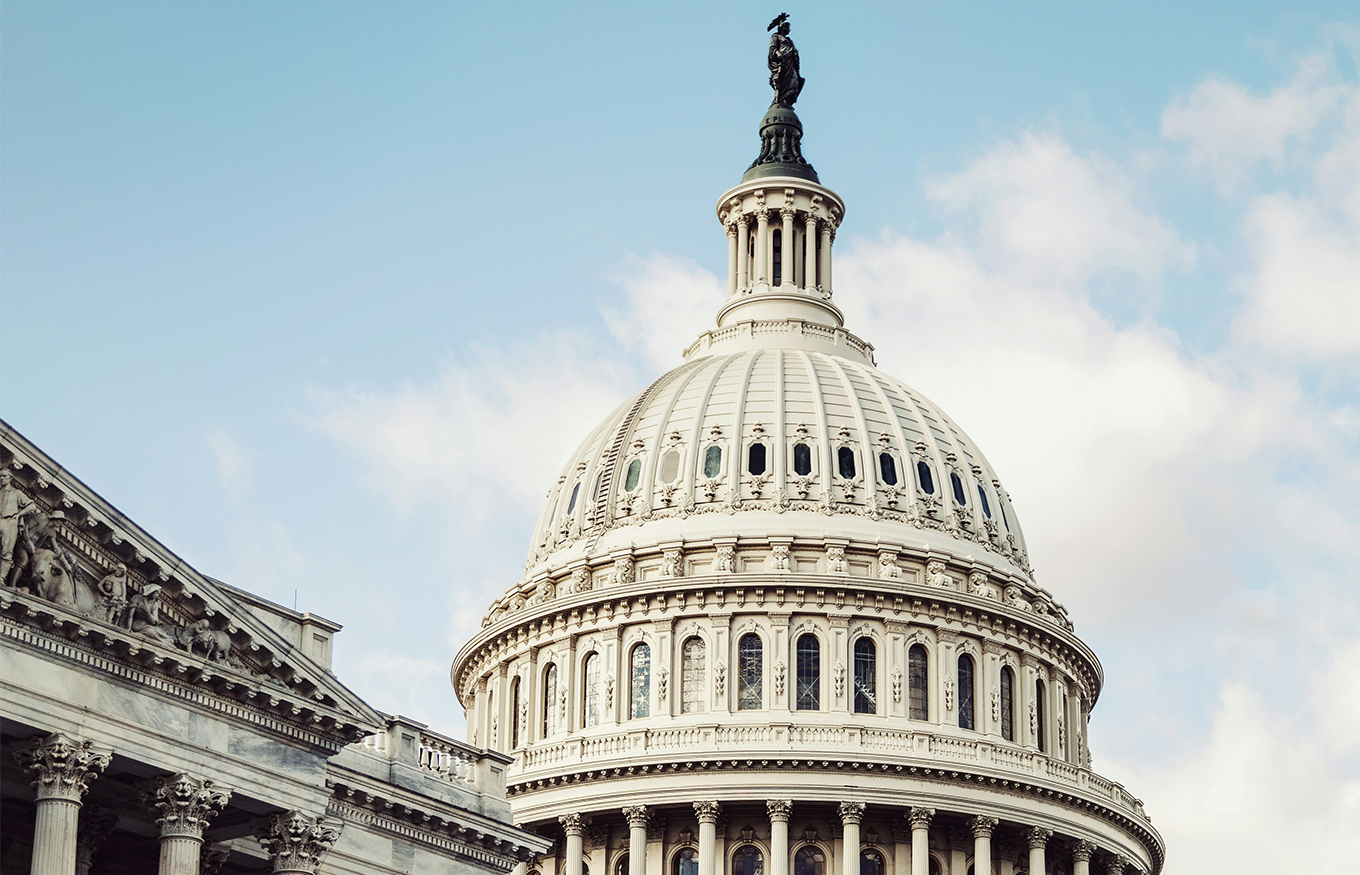To help inform Issue One’s landmark report, “The Price of Power,” we interviewed several members of our bipartisan ReFormers Caucus at-length about their experiences with fundraising and concerns with the “committee tax” imposed on lawmakers.
Every Tuesday and Thursday over the next few weeks, we will release edited excerpts of those conversations with these former lawmakers to supplement and expand on the disturbing picture the report painted: that of a broken democracy, which Congress itself must act to fix.
***
Dan Glickman, a member of Issue One’s ReFormers Caucus, is a Democrat who represented Kansas’ 4th Congressional District in the U.S. House of Representatives from January 1977 until January 1995. He went on to serve as the secretary of agriculture under President Bill Clinton from March 1995 until January 2001. He currently serves on the board of Issue One.
During your time in Congress, what role did fundraising and party dues play in committee assignments and advancing through the committees?
It was a very insignificant factor. Decisions on committee assignments were made for other reasons. You didn’t really raise money for your party at all at that point in time. Party spending was pretty nominal. It was nothing like it is today. Money is a much bigger factor today in terms of getting on committees, staying on committees and becoming a committee chair.
How would you describe things today?
Almost everybody who’s a committee chair or ranking member, particularly in the House of Representatives, is actively involved in raising money. If lawmakers don’t participate in this fundraising system, they generally don’t reach the top of the ranks anymore.
Why do you think those changes have occurred?
Because money has just generally metastasized in our political system. The need for money is just monumentally greater. Raising money has become a much bigger part of the job of being a congressman or a senator.
Why’s that?
You have to do it. If you don’t do it, it probably will impact your election dramatically because it would be almost unilaterally disarming if you didn’t do it. And you also have to raise money not only for yourself, but for your party.
How problematic do you think it is that committee chairs, in particular, are being asked to raise so much money?
It’s extremely unhealthy. It takes significant time away from people doing their jobs. Today, money infects the political system in a way that I never saw before. I’m not naïve. Money always had something to do with politics. A long time ago, Jesse Unruh said that ‘Money is the mother’s milk of politics.’ But it’s become the cottage cheese and the cream cheese and everything else. It’s not only the mother’s milk.
When it comes to the committee assignments and the committee chairmanships, what factors do you think should be contributing to who gets put where and who becomes a chairman or a ranking member on a committee?
Factors like seniority, competence and ability. How they run their committees and how they manage their portfolios of operations. Some degree of loyalty to your party is also important. You don’t want a committee chairman who defiantly disagrees with the party on philosophical issues. I’m not saying that you don’t want people cooperating in the raising of money. Fundraising prowess just shouldn’t become the primary arbiter of determining whether you’re eligible to be a committee chair or not.
How much pressure was there on you to raise money when you were serving?
Insignificant.
What factors led us to the point where we are today?
Well, Congress became more competitive. Until the 1994 midterm election, the Democrats had run Congress for many, many years. Newt Gingrich on the Republican side and Tony Coelho on the Democratic side both saw the need to raise larger amounts of money as a necessary ingredient in terms of keeping the Democrats or keeping the Republicans in control. More and more people started to get into the game of raising money. Media became more expensive and more diverse.
What kind of things could the parties do to institute changes, to lessen the role that money is playing in the committee assignments and committee chairmanships?
It’s very difficult to change because nobody wants to unilaterally disarm. But at a minimum, I would say that you shouldn’t allow fundraising to take place while Congress is actually meeting or in session. That would, at least, remove the requirement of them going and spending the afternoon doing call time or raising money at the same time that an issue is coming up for a vote that relates to the money that they are raising. That’s not a perfect solution, but at least it’s a step in the right direction. A lot of state legislatures do not allow fundraising while the legislature is in session.
Some people are worried about special interests coming in and trying to buy access to lawmakers. Other people say that the leaders of committees are in a position to extort the people they regulate. What is your take on that dynamic?
I am not really on the ‘extorting’ side. There may be some members of Congress who push donors who are, let’s say, interested in issues before their committees. ‘Extorting’ is too strong. I’d say ‘cajoling’ is probably a better term. I think members push donors and donors push members, but the political system encourages this.
What are the consequences of money becoming so important?
Unfortunately, your ability to be a successful politician is now judged as much by how much money you can raise as how smart or how effective you are. That becomes kind of a self-fulfilling prophecy. You’ve got to keep raising money in order to stay in the game.
How much does this concern you?
It bothers me, and should bother the American people, that most members of Congress say that while they do not like the current campaign fundraising grind, they actively participate in it, in part because they feel trapped by it. The current system impedes the ability of getting the public’s business done effectively. But what is missing is the public groundswell that would demand changes.
Former Rep. Dan Glickman (D-KS) is a member of Issue One’s ReFormers Caucus, the largest bipartisan coalition ever assembled on behalf of political reform and government ethics. Read more about “The Price of Power” here.






